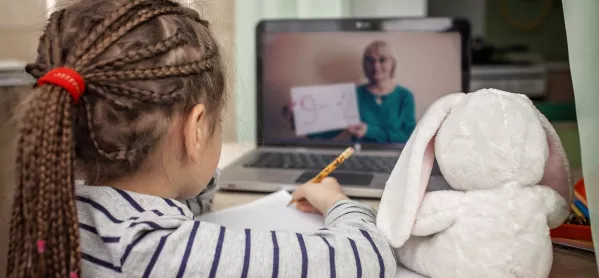During the partial closure of schools back in April, Labour peer Lord Adonis announced that he had been in touch with Amanda Spielman, the Ofsted chief inspector, to voice his concerns that “many schools are not providing adequate online learning and support during the crisis”.
And on Thursday, in the House of Lords, he called for Ofsted to start grading schools on their online learning.
“Ofsted should be grading all schools, not just giving advice; it should be grading them by the quality of their online learning,” he said.
What does good online learning look like?
To my mind, there are a number of problems with this idea, but we will stick with the main one for now: no one knows what online learning should look like. We have no criteria for judging the quality of material provided for online learning or the quality of online teaching.
For instance, while some seem convinced that high-quality online learning needs to include live lessons, research by the Education Endowment Foundation has found that things aren’t that simple. “Quality of remote teaching is more important than how lessons are delivered,” the EEF states. “For example, teachers might explain a new idea live or in a pre-recorded video.”
Online learning, at this scale and with pupils of these age groups, is unprecedented. We don’t yet know what works, and even if we did, we wouldn’t know what works in each context.
The online learning offered by a school in an affluent area may look very different to the online learning offered by a school serving a more deprived community. The online learning for five-years-olds can’t be the same as that offered to 17-year-olds. Online learning set during a national lockdown when schools are closed to all but a few pupils will look very different to online learning that is set for a few self-isolating pupils whilst the rest of the pupils are learning in class.
Right now, there are far too many variables for anyone to make a judgement about who is getting it right and who is getting it wrong. If anyone thinks that they have such criteria, perhaps they could publish it so that we could either learn from it or explain where they have gone wrong.
However, I can see why someone outside of the classroom might believe that we can judge the quality of online learning by applying the same kind of criteria that is used to judge learning in school. It would appear to make sense that we should simply replicate the classroom as far as possible when pupils are working remotely, but this misses something that all teachers know: online learning, whether live or on demand, doesn’t replicate the magic of the classroom.
Online learning will need to look very different to that which goes on in the classroom because the things that we do in the classroom - checking on pupils’ work as it is being done, stopping the class when you notice confused faces, gauging who is paying attention and who isn’t - can’t be done remotely.
As a profession, we are still working out what works, and what works in different contexts. And until we know more about this, the last thing we need is for teachers, who are already struggling to do their best by their pupils, to start being judged on arbitrary criteria.
Mark Enser is head of geography and research lead at Heathfield Community College. His latest book, Generative Learning in Action, is available now. He tweets @EnserMark





